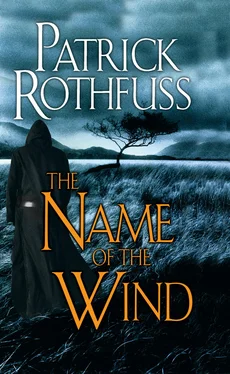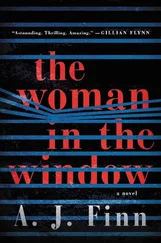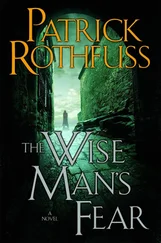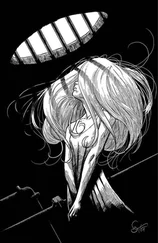As we approached the Eolian the doorman tugged at the front of a wide-brimmed hat and made a nodding bow. He was at least six and a half feet tall, deeply tanned and muscular. “That will be one jot, young master,” he smiled as Wilem handed over a coin.
He turned to me next with the same sunny smile. Looking at the lute case I carried he cocked an eyebrow at me. “Good to see a new face. You know the rules?”
I nodded and handed him a jot.
He turned to point inside. “You see the bar?” It was hard to miss fifty feet of winding mahogany that curved through the far end of the room. “See where the far end turns toward the stage?” I nodded. “See him on the stool? If you decide to try for your pipes, he’s the one you want to talk to. Name’s Stanchion.”
We both turned away from the room at the same time. I shrugged my lute higher onto my shoulder. “Thank you—” I paused, not knowing his name.
“Deoch.” He smiled again in his relaxed way.
A sudden impulse seized me, and I held out my hand. “Deoch means ‘to drink.’ Will you let me buy you one later?”
He looked at me for a long second before he laughed. It was an unrestrained, happy sound that came leaping straight from his chest. He shook my hand warmly. “I just might at that.”
Deoch released my hand, looking behind me. “Simmon, did you bring us this one?”
“He brought me, actually.” Simmon seemed put out by my brief exchange with the doorman, but I couldn’t guess why. “I don’t think anyone can really take him anywhere.” He handed a jot to Deoch.
“I’ll believe that,” Deoch said. “There’s something about him I like. He’s a little fae around the edges. I hope he plays for us tonight.”
“I hope so too,” I said, and we moved inside.
I looked around the Eolian as casually as I could manage. A raised circular stage thrust out from the wall opposite the curving mahogany bar. Several spiraling stairways lead to a second level that was much like a balcony. A smaller, third level was visible above that, more like a high mezzanine circling the room.
Stools and chairs ringed tables throughout around the room. Benches were recessed into niches in the walls. Sympathy lamps were mixed with candles, giving the room a natural light without fouling the air with smoke.
“Well, that was cleverly done,” Simmon’s voice was brittle. “Merciful Tehlu, warn me before you try any more stunts, will you?”
“What?” I asked. “The thing with the doorman? Simmon, you are jittery as a teenage whore. He was friendly. I liked him. What’s the harm in offering him a drink?”
“Deoch owns this place,” Simmon said sharply. “And he absolutely hates it when musicians suck up to him. Two span ago he threw someone out of here for trying to tip him.” He gave me a long look. “Actually threw him. Almost far enough to make it into the fountain.”
“Oh,” I said, properly taken aback. I snuck a look at Deoch as he bantered with someone at the door. I saw the thick muscles in his arm tense and relax as he made a gesture outside. “Did he seem upset to you?” I asked.
“No, he didn’t. That’s the damnedest thing.”
Wilem approached us. “If the two of you will stop fishwiving and come to table, I will buy the first drinks, lhin ?” We made our way to the table Wilem had picked out, not too far from where Stanchion sat at the bar. “What do you want to drink?” Wilem asked as Simmon and I sat down and I settled my lutecase into the fourth chair.
“Cinnamon mead,” Simmon said without stopping to think.
“Girl,” Wilem said in a vaguely accusatory way and turned to me.
“Cider,” I said. “Soft cider.”
“Two girls,” he said, and walked off to the bar.
I nodded toward Stanchion. “What about him?” I asked Simmon. “I thought he owned the place?”
“They both do. Stanchion handles the music end of it.”
“Is there anything I should know about him?” I asked, my near catastrophe with Deoch having sharpened my anxiety.
Simmon shook his head. “I hear he’s cheerful enough in his own right, but I’ve never talked with him. Don’t do anything stupid and everything should be fine.”
“Thanks,” I said sarcastically as I pushed my chair back from the table and stood.
Stanchion had a medium build and was handsomely dressed in deep green and black. He had a round, bearded face and a slight paunch that was probably only noticeable because he was sitting. He smiled and motioned me forward with the hand that wasn’t holding an impressively tall tankard.
“Ho there,” he said cheerily. “You have the hopeful look about you. Are you here to play for us tonight?” He raised a speculative eyebrow. Now that I was closer, I noticed that Stanchion’s hair was a deep, bashful red that hid if the light struck him the wrong way.
“I hope to, sir,” I said. “Though I was planning to wait for a while.”
“Oh, certainly. We never let anyone try their talent until the sun is down.” He paused to take a drink, and as he turned his head I saw a golden set of pipes hanging from his ear.
Sighing, he wiped his mouth happily across the back of his sleeve. “What do you play then, lute?” I nodded. “Have any idea what you’ll use to woo us?”
“That depends, sir. Has anyone played ‘The Lay of Sir Savien Traliard’ lately?”
Stanchion raised an eyebrow and cleared his throat. Smoothing his beard with his free hand, he said, “Well, no. Someone gave it a whirl a few months ago, but he bit off more than he could swallow whole. Missed a couple fingerings then fell apart.” He shook his head. “Simply said, no. Not lately.”
He took another drink from his tankard, and swallowed thoughtfully before he spoke again. “Most people find that a song of more moderate difficulty allows them to showcase their talent,” he said carefully.
I sensed his unspoken advice and was not offended. “Sir Savien” is the most difficult song I had ever heard. My father had been the only one in the troupe with the skill to perform it, and I had only heard him do it perhaps four or five times in front of an audience. It was only about fifteen minutes long, but those fifteen minutes required quick, precise fingering that, if done properly, would set two voices singing out of the lute at once, both a melody and a harmony.
That was tricky, but nothing any skilled lutist couldn’t accomplish. However, “Sir Savien” was a ballad, and the vocal part was a counter melody that ran against the timing of the lute. Difficult. If the song was being done properly, with both a man and a woman alternating the verses, the song was further complicated by the female’s counter harmony in the refrains. If it is done well, it is enough to cut a heart. Unfortunately, few musicians could perform calmly in the center of such a storm of song.
Stanchion drank off another solid swallow from his tankard and wiped his beard on his sleeve. “You singing alone?” he asked, seeming a bit excited in spite of his half-spoken warning. “Or have you brought someone to sing opposite you? Is one of the boys you came in with a castrati?”
I fought down laughter at the thought of Wilem as a soprano and shook my head. “I don’t have any friends that can sing it. I was going to double the third refrain to give someone the chance to come in as Aloine.”
“Trouper style, eh?” He gave me a serious look. “Son, it’s really not my place to say this, but do you really want to try for your pipes with someone you’ve never even practiced with?”
It reassured me that he realized how hard it was going to be. “How many pipes will be here tonight, roughly?”
He thought briefly. “Roughly? Eight. Maybe a dozen.”
Читать дальше











